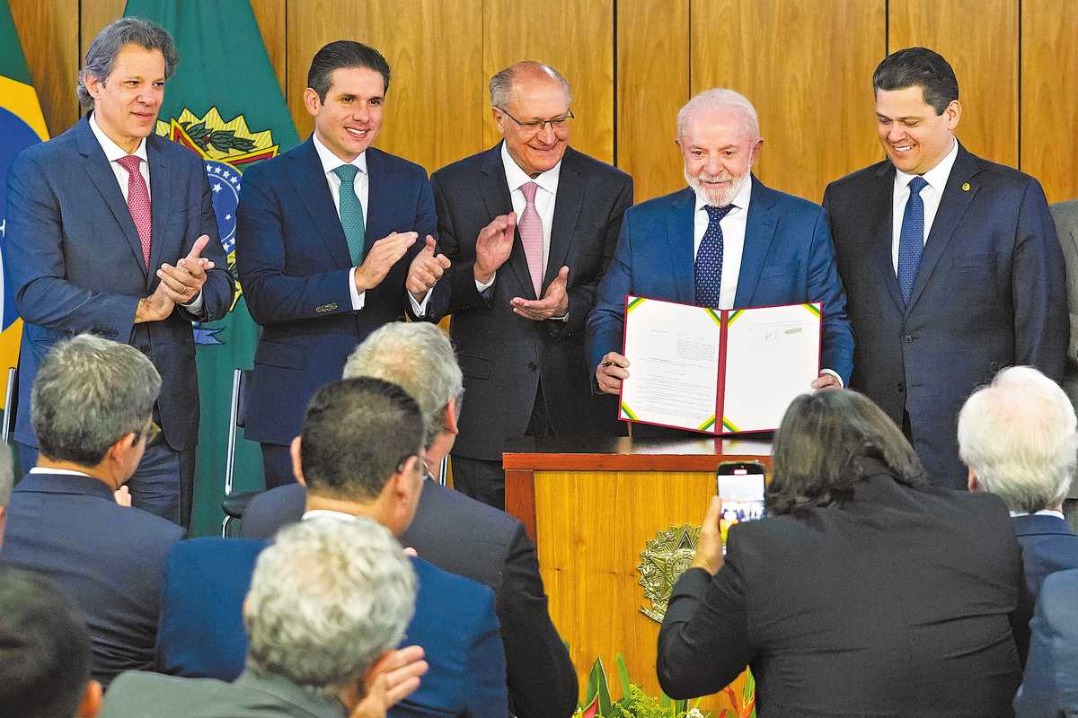China, India to?start new round?of consultations

China and India are preparing for a new round of high-level diplomacy aimed at easing their border issues and improving bilateral ties, as Foreign Minister Wang Yi begins a three-day visit to India on Monday, his first in more than three years.
According to the Foreign Ministry, Wang, who is also China's special representative on the China-India boundary question, will also co-chair the 24th round of talks between the special representatives of China and India on the boundary question with Indian National Security Advisor Ajit Doval.
It is the second such high-level meeting on the boundary question since the border clashes in 2020, which plunged relations to their lowest point in decades. The last round, held in Beijing in December, produced a six-point consensus on advancing negotiations, strengthening border management, enhancing cross-border cooperation and other related matters.
Reports from Bloomberg, citing unnamed people, suggested that the upcoming talks could focus on reducing troop levels in disputed border areas, a "step that would mark significant progress toward restoring trust between the two countries".
Since Chinese and Indian leaders met in Kazan, Russia, in October, the two countries have maintained frequent contacts at various levels and taken gradual measures to stabilize ties.
Foreign Ministry spokesman Lin Jian said on Thursday that China stands ready to work with India to act on the important common understandings reached between leaders of the two countries, maintain the momentum of high-level exchanges, cement political mutual trust, enhance practical cooperation, properly handle differences, and promote the sustained, sound and steady development of Sino-Indian ties.
This year marks the 75th anniversary of the establishment of diplomatic relations between China and India.
Foreign Minister Wang met in Beijing with Doval in June and Indian External Affairs Minister Subrahmanyam Jaishankar in July. During their talks, both sides expressed readiness to make use of opportunities presented by the anniversary, deepen pragmatic cooperation across a wider spectrum, and jointly maintain peace and tranquility in border areas.
China and India have seen some progress in economic, trade, and cultural exchanges in the past several months. Randhir Jaiswal, spokesman for India's Ministry of External Affairs, said on Thursday that both countries are working to resume trade through three designated border points.
It was also reported that both sides are working on restoring direct flight connections, which were suspended during the COVID-19 pandemic, as early as next month, with a possible official announcement expected during the Shanghai Cooperation Organization Tianjin Summit at the end of August.
On the cultural front, earlier this year, China allowed Indian pilgrims to travel to the Xizang autonomous region for religious purposes. India resumed issuing tourist visas for Chinese citizens in July.
Wang's trip comes as Indian Prime Minister Narendra Modi will attend the SCO Summit in Tianjin later this month amid growing economic pressure on India from the United States, which has imposed steep tariffs on Indian goods.
Amid rising protectionism and unilateralism?, experts said both Beijing and New Delhi should seize the momentum to improve bilateral relations by strengthening cooperation within multilateral frameworks like the SCO to inject positive energy into Global South cooperation.
Lin Minwang, a professor at Fudan University's Institute of International Studies, said that the high-level talks this week show that China-India relations are on the mend and the easing of border tensions may help create conditions for renewed cooperation in trade, investment and culture.
"Given India's demographic advantages, development momentum and key role in international multilateral mechanisms, promoting the healthy development of China-India relations benefits both countries and carries global significance," Lin said.
However, experts also noted lingering uncertainties between the two neighbors, saying that it is crucial for them to enhance collaboration across bilateral and multilateral platforms, and steer relations toward long-term, constructive growth.

































